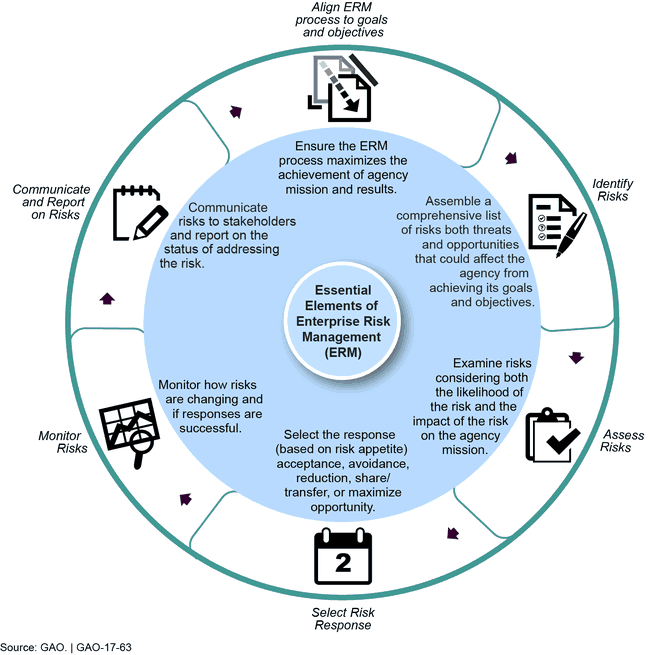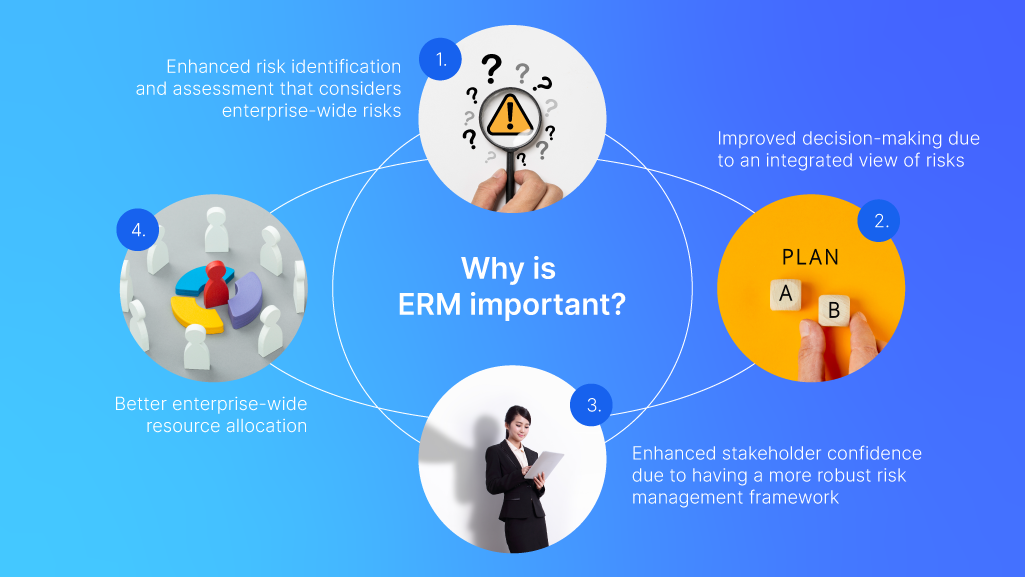Insider threats contribute to a holistic security enhancement plan
Wiki Article
Check out the Role of AI in Promoting Ethics and Honesty to Battle Insider Threats Efficiently
The integration of AI in business frameworks has come to be essential in resolving insider threats. By employing advanced analytics and real-time surveillance, AI systems can identify deviations from ethical habits among workers (Insider threats). This positive approach not just improves compliance yet likewise cultivates an atmosphere of depend on. As business progressively rely upon these modern technologies, concerns emerge concerning their performance and potential effects for workplace culture. What lies in advance in the advancement of AI's function in promoting integrity?Understanding Expert Risks and Their Influence On Organizations
Although companies commonly concentrate on exterior risks, insider hazards pose a substantial danger that can threaten protection and honesty. These risks emerge from individuals within the company, such as employees or service providers, who may abuse their accessibility to delicate information for personal gain or malicious intent. The impact of expert dangers can be serious, resulting in economic losses, reputational damages, and lawful implications.Factors adding to expert threats consist of dissatisfaction with the work environment, absence of oversight, and insufficient worker training on protection methods. Organizations commonly battle to recognize these hazards, as they can be challenging to discover up until significant damage has occurred. Prevention approaches must concentrate on promoting a culture of trust fund and responsibility, alongside implementing robust surveillance and reporting systems. By recognizing and resolving the intricacies of expert risks, organizations can improve their safety position and safeguard their important assets from inner dangers.
The Evolution of AI in Office Safety
As companies increasingly face diverse protection obstacles, the assimilation of expert system (AI) in work environment safety and security has developed substantially. Initially, AI applications focused primarily on automating fundamental safety procedures, such as accessibility control and surveillance. Improvements in maker learning and data analytics have actually changed AI right into a proactive tool qualified of determining possible hazards and susceptabilities in real-time.Organizations now utilize AI-driven systems to assess huge quantities of data, enabling them to detect strange habits that may show insider dangers. This development has led to the growth of sophisticated formulas that can pick up from historical occurrences, boosting the system's anticipating capabilities. On top of that, AI devices are increasingly utilized to enhance case feedback procedures, permitting safety teams to act promptly and properly.
How AI Monitors Employee Actions for Ethical Conformity
Artificial intelligence plays a vital role in monitoring staff member actions to ensure honest compliance within companies. AI systems evaluate substantial quantities of information created by workers, including communications, deals, and access to delicate info. By using sophisticated formulas, these systems can recognize deviations from established honest criteria and company policies.Artificial intelligence designs continuously adjust to identify patterns of habits that might indicate ethical breaches, such as unapproved information access or unusual transaction activities. Insider threats. Furthermore, AI-driven tools can offer real-time notifies to administration, assisting in timely treatments when potential threats are identified
The integration of AI right into compliance monitoring not just boosts the organization's capacity to maintain honesty however additionally cultivates a society of accountability amongst workers. By advertising transparency, AI systems serve as a deterrent against unethical actions, making certain that staff members remain straightened with business values and ethical standards.
Examining Patterns: Determining Risky Habits With AI
An expanding variety of organizations are leveraging AI to evaluate patterns that may suggest high-risk habits among workers. By utilizing innovative algorithms, these systems can sift with huge quantities of data, recognizing anomalies in individual habits that could suggest prospective expert risks. As an example, AI can detect unusual gain access to patterns to delicate details, such as employees accessing files outside their usual range of job or throughout irregular hours. In addition, behavior analytics can highlight constant modifications in a worker's interaction style or cooperation habits, which might indicate underlying issues. This proactive strategy makes it possible for organizations to identify danger variables prior to they escalate into substantial hazards. The combination of AI into keeping track of methods not only boosts safety however also fosters a culture of responsibility and honest behavior. By identifying these patterns, organizations can much better recognize the behavior characteristics within their labor force, inevitably advertising a safer and a lot more ethical workplace.
Real-Time Insights: Immediate Feedbacks to Potential Hazards
Real-time insights with anticipating analytics and automated alert systems play an essential function in addressing prospective hazards to values and integrity. By leveraging these modern technologies, companies can prepare for high-risk behaviors and respond promptly to minimize dangers. This positive technique enhances accountability and promotes a society of integrity in different environments.Predictive Analytics Applications

Automated Alert Equipments
Anticipating analytics provides a structure for organizations to enhance their responsiveness to ethical issues through automated alert systems. These systems utilize real-time data to keep an eye on tasks, discovering abnormalities that may signify possible insider risks. By leveraging artificial intelligence algorithms, automated informs can recognize patterns of actions that differ developed norms, permitting speedy treatment. This immediacy is important in mitigating risks connected with dishonest methods. Furthermore, automated sharp systems can simplify interaction amongst relevant stakeholders, making sure that prospective risks are addressed immediately and properly. As companies progressively depend on AI-driven services, the assimilation of automated sharp systems will certainly play an essential role in cultivating a society of principles and integrity, inevitably safeguarding organizational possessions.Fostering a Culture of Depend On Through AI-Driven Openness
AI-driven transparency can significantly enhance count on within companies by promoting accountability and open communication. With real-time surveillance services, stakeholders can gain insights right into procedures and decision-making, fostering a culture of stability. Data-driven decision-making better supports this openness, allowing educated choices my response that straighten with moral requirements.Enhancing Transparency and Responsibility
How can companies successfully cultivate a society of trust? By improving openness and accountability via the tactical use man-made intelligence. AI can assist companies systematically track decision-making procedures, guaranteeing that activities straighten with recognized ethical criteria. This openness allows workers to see the rationale behind policies and decisions, lowering ambiguity and promoting a feeling of justness. In addition, AI-driven devices can assist in clear communication relating to assumptions and obligations, empowering individuals to take ownership of their actions. As responsibility ends up being ingrained in the organizational culture, workers are more probable to take part in ethical behavior, knowing their activities are checked and evaluated. Ultimately, this technique grows a setting where trust fund can prosper, greatly mitigating the risk of expert hazards.Real-Time Surveillance Solutions
As organizations progressively seek to foster a culture of trust, real-time surveillance remedies arise as a crucial tool in improving openness. These AI-driven systems continuously track tasks, supplying insights into customer habits and prospective abnormalities that may indicate expert dangers. By applying such tracking solutions, companies can proactively determine risks, ensuring timely responses to suspicious activities. This not just safeguards sensitive information yet also enhances a dedication to moral practices. Moreover, the clear nature of real-time monitoring aids develop staff member confidence, as people know that their activities are being observed for the greater good. Inevitably, these services offer to grow a workplace environment grounded in trust fund, responsibility, and moral stability, important for reducing expert risks properly.
Data-Driven Decision Making
Real-time surveillance solutions prepared for data-driven choice making, which substantially improves business transparency. By leveraging AI innovations, companies can assess large quantities of data to recognize abnormalities and patterns a measure of prospective insider dangers. This logical strategy enables stakeholders to make educated decisions grounded in empirical evidence, promoting a society of trust among staff members. Openness in decision-making processes, strengthened by AI-driven insights, urges liability and moral behavior. In addition, it permits organizations to proactively address vulnerabilities, making certain that actions taken are justified and communicated plainly. Therefore, the application of data-driven approaches not just mitigates threats linked with insider threats but also enhances the worths of integrity and moral conduct within the organizational structure.Future Patterns: The Duty of AI in Enhancing Workplace Ethics
While organizations significantly turn to expert system for this functional effectiveness, the potential of AI to enhance work environment ethics is obtaining prominence. Future patterns suggest that AI will certainly play an important duty in developing ethical frameworks and guidelines, enabling organizations to navigate complex ethical problems. By analyzing substantial amounts of information, AI can determine patterns of unethical habits and offer insights that advertise transparency and accountability.AI-driven devices can facilitate real-time monitoring of staff member interactions, ensuring adherence to honest criteria. This proactive technique not just alleviates insider threats however additionally grows a culture of stability. As organizations embrace AI innovations, they need to likewise prioritize moral programming and mathematical prejudice decrease to guarantee fairness.
In this progressing landscape, the assimilation of AI in ethical methods stands for a transformative change, fostering an atmosphere where honesty is not merely anticipated but systematically reinforced.
Often Asked Questions
Exactly How Does AI Differentiate Between Benign and Malicious Actions?
AI differentiates between benign and malicious actions by analyzing patterns in user habits, using machine discovering formulas to identify abnormalities, and evaluating contextual check this data to figure out whether activities line up with well-known standards or show prospective dangers.Can AI Equipment Replace Human Judgment in Ethical Decision-Making?
AI devices can not completely replace human judgment in ethical decision-making. While they can assess information and identify patterns, the nuanced understanding of context, worths, and ethical ramifications still needs human insight and discernment.What Are the Privacy Effects of AI Keeping Track Of Employee Behavior?

How Can Organizations Guarantee AI Algorithms Are Morally Made?
Organizations can assure AI formulas are morally developed by applying clear development processes, entailing varied stakeholders, carrying out normal audits, and adhering to well-known moral structures that prioritize fairness, liability, and respect for customer personal privacy and rights.What Training Is Required for Personnel to Understand Ai's Honest Role?
Staff training must incorporate foundational AI ethics, data privacy, and bias awareness. Workshops, case studies, and interactive sessions can enhance understanding, guaranteeing workers acknowledge AI's ethical ramifications and its function in promoting integrity within the organization.
Synthetic intelligence plays a crucial duty in monitoring staff member actions to ensure honest compliance within organizations. The combination of AI into monitoring practices not only enhances security but additionally cultivates a culture of accountability and honest behavior. While companies increasingly encounter moral dilemmas and possible stability violations, anticipating analytics applications use timely insights that can aid reduce these risks. Anticipating analytics offers a foundation for companies to improve their responsiveness to ethical concerns via automated alert systems. Future trends suggest that AI will play a necessary function in establishing honest frameworks and standards, allowing companies to browse complicated ethical issues.
Report this wiki page